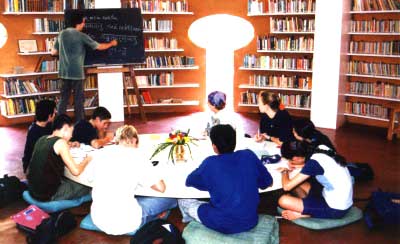
Cao is not the only one interested in learning the ‘forgotten language’. Professionals are learning Sanskrit to read ancient texts and use the knowledge in their current profession. “I teach Buddhist philosophy (in China). A lot of Buddhist scriptures were originally written in Sanskrit. So it was necessary for me to learn Sanskrit to be able to research and teach other students in this field,” Cao, who teaches at Wuhan University in China, said.
Nearer home, Rashtriya Sanskrit Sansthan is witnessing a turnaround in its fortunes. Established in 1972 by the ministry of Human Resource Development, it’s a deemed university with 11 campuses across the country. Last year, 33,668 amateur Sanskrit learners enrolled in its 1,156 centres for a non- formal certificate programme.Nearly 750 students enrolled in its distance mode this year, which is up from about 300 students in its debut year in 2010.”We have engineers, teachers, businessmen and even farmers learning Sanskrit these days.
They have perhaps realised that matter related to their work and life is available in Sanskrit books,” Ratnamohan Jha, national coordinator of non- formal Sanskrit education, said.
Increased awareness about Vaastu Shastra, Yoga and Ayurveda has also added to the relevance of Sanskrit. Rashtriya Sanskrit Sansthan’s Delhi campus has 36 students in the current batch of its entry- level course, Shastri Bridge. Of them, seven are engineers, three are teachers and two are doctors.
However, employment opportunities for Sanskrit learners are dismal.”Students opt for Sanskrit at college level because of low scores. Cut- off for Sanskrit education is as low as 45 per cent,” Dr Pankaj K. Mishra, associate professor, department of Sanskrit, St Stephen’s College, said.He added: ” But people from other professions are helping to spread the word on its importance. They have started to value the source of all scientific and practical knowledge. And this has globalised Sanskrit in the process.”






























